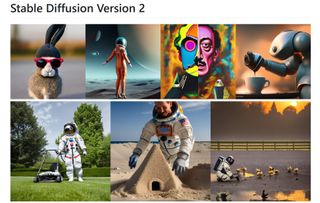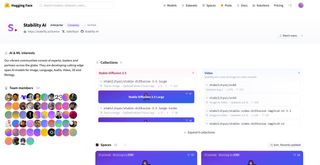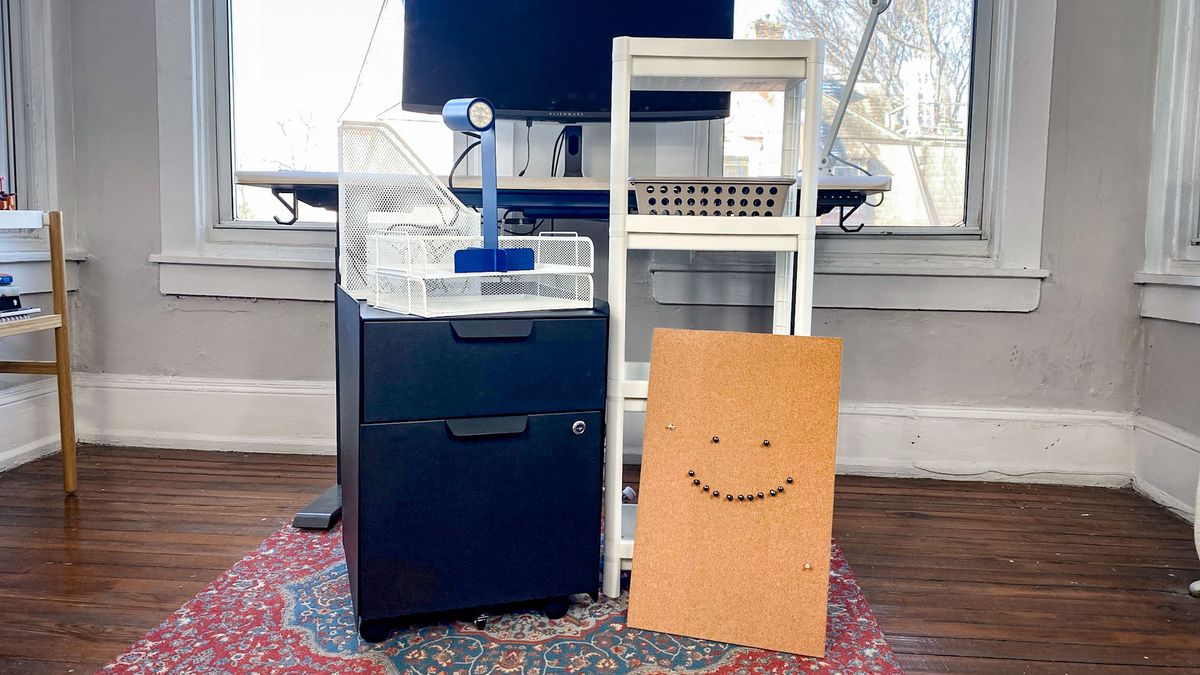With all the laser-focused media attention on mega AI brands like OpenAI, Meta, and Anthropic, it’s easy to overlook a huge AI ecosystem that rarely makes the news. I’m talking about the open-source movement, which is busily building out an AI universe for those of us with skinny wallets, who still want to use these cool new tools.
The individuals and small companies driving this backroom software revolution aren’t interested in grabbing the headlines; they’re more interested in building communities and giving back to the AI ecosystem.
What is open source?
Open source is a software ‘movement’ (they kind of hate that term), which encourages the creation of free software. This means the software is free to use, change and share with others. It's all about open collaboration so that anyone can contribute.
There are no restrictions on who can use it; the goal is to make the software as freely accessible as possible. This encourages people to work together and keep improving the products.
This concept started in the early 1950s, and has continued to produce important work for the world. The Internet and World Wide Web would not be possible today without the open source software tools and standard protocols which run web servers and communication systems.
The role of Stable Diffusion in AI

The biggest example of this ethos at work in the AI world is the StableDiffusion image generation universe. Since its launch in 2022, this text to image technology has spawned a massive army of developers building out image tools and services for the public at large.
You can catch a lot of it at the HuggingFace website, which holds over a million open source models and demos aimed at improving the AI world at large.
A lot of the gorgeous imagery you see reaching the market comes from the work these people are doing, and it’s all released under the open source, free software banner.
But it’s not just images and video. There’s also a sea of open source AI utilities which are powering apps far from the news headlines. For example, the Ollama platform, which is powering a growing percentage of AI use on user’s computers.
This downloadable technology lets you run smaller AI models on your computer, even if you’ve only got a modest setup. It’s great for hobbyists, those concerned with privacy, and people who resent supporting mega cloud services like Microsoft and Google.
Creating local AI
Before you start to assume that this is all nerd city, there’s a very good chance that if AI ever reaches your smartwatch or other small devices in your life, the groundwork will have come through this kind of home-brew experimentation.
That, and an army of open-source AI researchers in universities and colleges across the world. Never underestimate the power of the crowd.
However, not all open-source work is done at the kitchen table level. Larger players such as Meta, have made a big deal about releasing what they call ‘open’ large language models. In this case, they’re only partly open, and there’s a growing call for the definition of its LlaMa models to be changed from ‘open source’ to ‘open weights’.
It’s a technical but important distinction to preserve the purity of the open-source method. Open should mean nothing is locked away, which is not the case with LlaMa models at the moment.
Sometimes open becomes closed

At this point I’m going to add a big ugly caveat. There’s been a recent nasty trend for startups to loudly announce the launch of their golden new ‘open source’ product, which in fact is just a marketing mechanism to gain public attention.
Once the numbers grow, they ignore the source code and release a full commercial, fee based, service to bait and switch enthusiastic suckers.
The biggest example, of course, is OpenAI. The company launched with a huge fanfare as an open source AI model maker, grabbing headlines, investment and the brightest minds in the business. Then quietly switched to a profit based entity last month. Pretty sneaky, Mr Altman.
Open source will win out in the end

Despite this and other such moves, open-source AI software continues to rock the kasbah, as more people join the gold rush. It may not be money driving the numbers, but reputations are also being made every hour in this white-hot tech environment.
Most names will never reach public consciousness, like TensorFlow, the pick & shovel of the AI model-making industry. But other names such as the French Mistral AI and BLOOM models, are destined to secure a public stature very soon now.
The true benefit of open source is in collaboration and improvements made by the community. One example of this came from Meta opening Llama. This enabled languages to be saved in countries that could never afford to build their own models.
We saw a prime example of the value of open source with Genmo's Mochi-1 AI video model earlier this week. This is state-of-the-art and comparable to leaders like Runway and Luma Labs Dream Machine. On launch, it would only run on a network of 4 H100 expensive GPUs but within hours the community created a fine-tuned version to run on a good gaming PC.
More from Tom's Guide
- Apple reportedly '2 years behind' on AI with Apple Intelligence — here's why
- I write about AI for a living — here's how to become a true power user
- Watch out, OpenAI — Haiper 2.0 AI video generation model just launched and it looks stunning





















 English (US) ·
English (US) ·